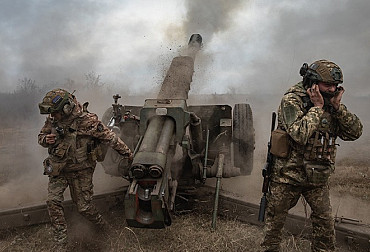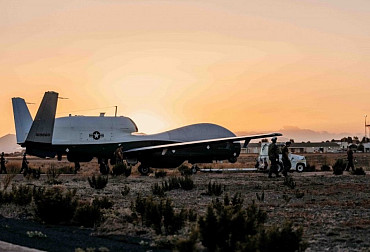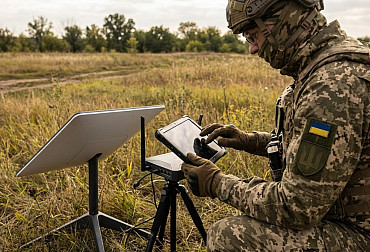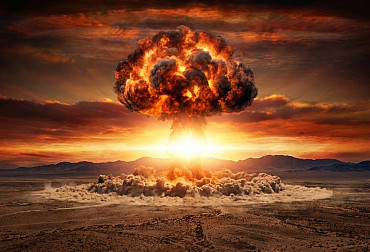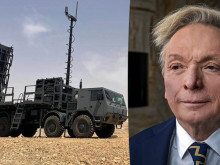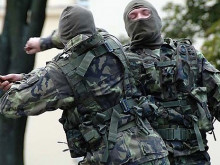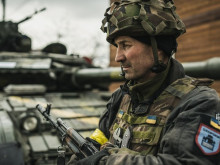Senior Warrant Officer of the Czech Army: An army with memory, tradition, and reverence for its heroes has a strong foundation and moral integrity
An interview with the newly appointed Chief Warrant Officer of the Czech Armed Forces, Warrant Officer Michal Gural, provides a behind-the-scenes look at one of the most important non-commissioned officer positions in the armed forces. The Chief Warrant Officer of the Czech Armed Forces is a bridge between the command and the warrant officer corps, ensuring communication, motivation, and the professional development of soldiers. In the interview, we asked Gural how he is following in the footsteps of his predecessor, Peter Smik, what challenges he sees in the areas of education, training, and care for soldiers, and what agenda and new ideas he wants to bring to the position of Chief Warrant Officer of the Czech Armed Forces.
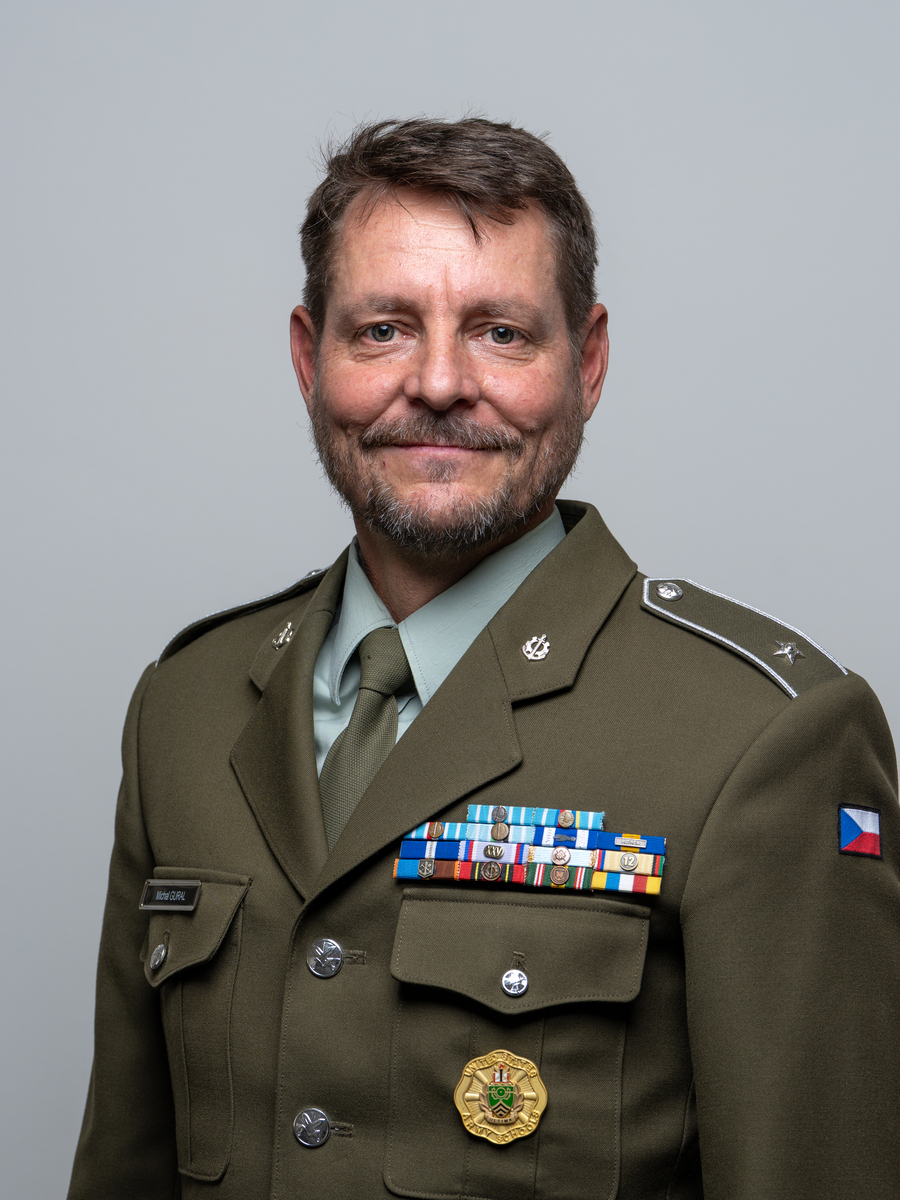
What does your appointment as Chief Warrant Officer of the Czech Army mean to you? How will you use your previous experience in the army in this position?
It may sound like a cliché, but I can definitely say that this is the pinnacle of my professional career in the Czech Army. Of course, this goes hand in hand with a huge amount of responsibility, flexibility, empathy, and trust. Experience is a big part of what shapes and defines us all. I could now recount some stories from my early days as a soldier, such as how I started out in Janovice nad Úhlavou and how my older colleagues passed on their experience to me, but that would take a long time. However, I can certainly say that I will try to use these experiences in my daily communication, in forming my opinions, and in my efforts to build bridges between the highest levels and the "silver corps."
You are following in the footsteps of former Chief Warrant Officer Peter Smik of the Czech Armed Forces. In what ways do you intend to continue in a similar vein to your predecessor, and what is your own agenda?
My predecessor, Chief Warrant Officer Peter Smik (Smiky), started many things with his characteristic enthusiasm, for which he deserves great thanks. There are many projects, and I don't want to list them all here, but I can mention one that combines everything we as soldiers can be very proud of — the bone marrow donation project. It is a project that I feel personally connected to because it concerns one of us. It is in our DNA to stand up for each other and help one another. I think it is also a great message for the public; we have a chance to inspire others to join us and help. The army is here for the people, but it is also made up of people. Today, we know that we have found a suitable donor for our colleague who needed a bone marrow transplant. However, this is not a one-off event for us; we will continue to support bone marrow donation. The army is also strong in that it is able to function in the long term; it has staying power.
Regarding your question about my own agenda, I would like to mention that there is no agenda that is in any way "mine." It is always necessary to cooperate with many other entities so that the result is not something "made by Gural," but rather a product of teams across the Czech Armed Forces. From this package, I could mention, for example, the training of non-commissioned officers and warrant officers, because well-trained, highly motivated, and satisfied personnel are what can fundamentally distinguish our army from some others. And now I could name a whole huge package of everything that would be needed to achieve this goal, from forks in the dining hall, to high-quality classroom training and education centers, to Wi-Fi in 21st-century barracks.
Another agenda I would like to work on is the dignified retirement of soldiers to the reserve. Very often, soldiers leave the army after 20 or 30 years of service, and the farewell is not at all adequate for what they have done for society. I am not saying that there are no units, garrisons, and troops that have a tradition of thanking and saying goodbye to their members.
How important is communication between staff sergeants of individual units for the army?
Extremely important, both vertically and horizontally, in short, with everyone.
Where do you see the greatest challenges in working with non-commissioned officers and warrant officers?
Well, I'll answer a little differently, in that I see the greater challenge as creating conditions for non-commissioned officers and warrant officers that are appropriate for today's world and environment.
Are you planning to introduce any changes or innovations to the role of Chief Warrant Officer of the Czech Armed Forces? Do you draw inspiration from your colleagues in the Alliance?
No, I am not planning any changes that would alter the essence of this position. I like continuity, especially in projects. What I really don't like are 180-degree turns. The position of Chief Warrant Officer has evolved since Luděk Kolesa created it from scratch – thanks, Luděk – to the present day. The position of Chief Warrant Officer of the Czech Armed Forces is evolving in the same way as the positions of all Chief Warrant Officers and Senior Warrant Officers. Inspiration and reflection on whether something could be done better is always appropriate, but I dare say that the level of our senior and chief warrant officers is very high today, also in terms of the structure and anchoring of these positions. For this, a huge thank you goes to the entire silver corps, as it is mainly thanks to them.
When handing over the position of Chief Warrant Officer of the Czech Armed Forces, you mentioned, among other things, the importance of caring for wounded soldiers. Will you continue to develop this direction, and how?
This is precisely the area in which Smiky was very involved, sacrificing a great deal, even at the expense of his personal life and family. I can definitely say that I want to follow in my predecessor's footsteps and continue his efforts in this regard.
What do you think are the key prerequisites for a high-quality military professional at the warrant officer level?
There are many areas that can be considered key. I can mention, for example, professional preparedness, the ability to mentor, personal and moral integrity, moral quality, discipline, resilience, authority, communication skills, the art of motivation, the ability to be proactive, loyalty, respect for individuality, and promoting teamwork. There are really a lot of them, and all of the areas mentioned can be considered key.
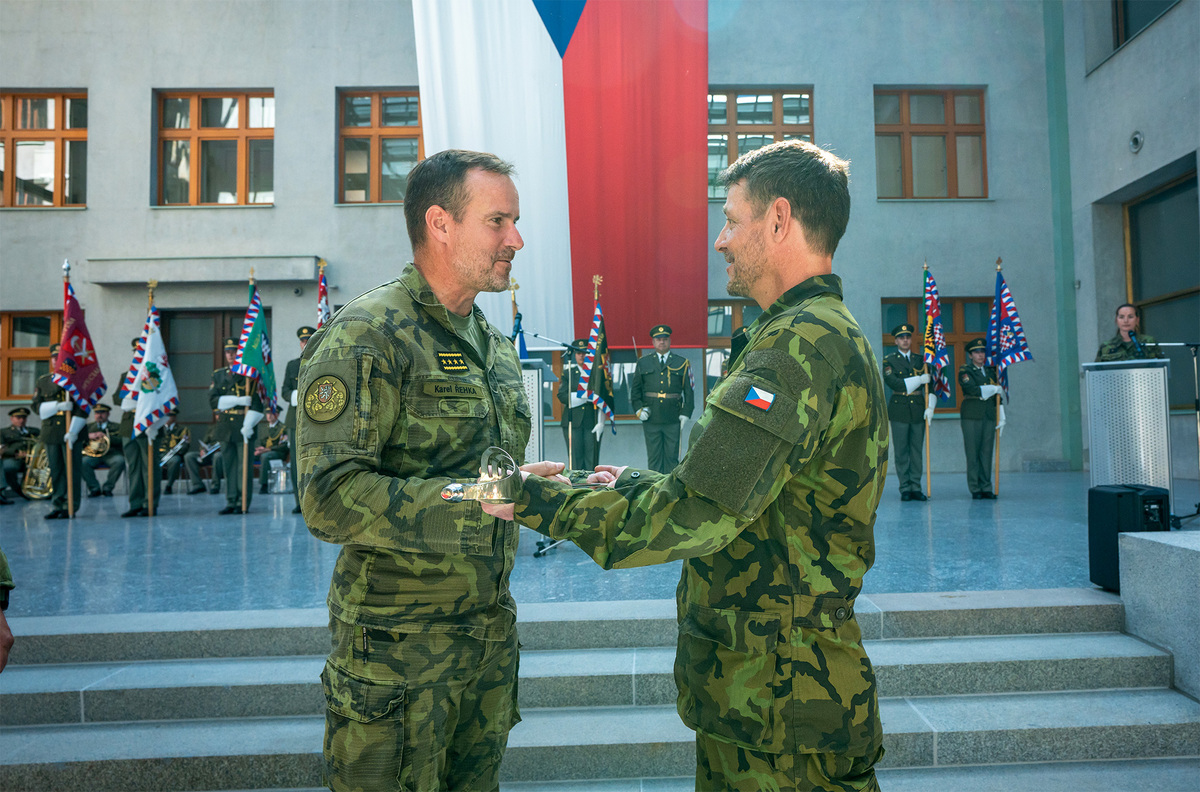
How would you assess the current level of education and training of non-commissioned officers and warrant officers?
The level of education and training of non-commissioned officers and warrant officers in the Czech Armed Forces is good. What we need to focus our attention on is the development and modernization of infrastructure, training technology, training facilities, and study areas. Last but not least, we will also have to focus on what requirements we have for given ranks and military expertise in terms of career growth.
How do you intend to support the morale, motivation, and professional development of soldiers in this category, and how do you perceive the role of the Chief Warrant Officer of the Czech Armed Forces as a mediator between the command and the warrant officer corps?
I would like to combine both questions, as I see the promotion of morale in the fact that you are precisely that mediator between the corps. And in order to be the one who tries to interpret, explain, and clarify things from the highest levels, you have to communicate, and you have to do so through senior warrant officers and senior specialists, mainly directly in the units and formations.
What significance do you think a unified identity and pride among members of the warrant officer corps have?
A sense of belonging, knowing where I belong, is important for everyone. For soldiers, it is a matter of principle. Pride in belonging to a corps or unit is simply the higher principle to which we have pledged ourselves.
Do you have any specific plans for better cooperation with the active reserve (AR) or with new recruits?
As far as the AR is concerned, I will definitely continue to meet with AR leaders and senior warrant officers. Incidentally, these meetings always have the strong support of the Chief of the General Staff. My previous position was at the Territorial Forces Command, which is why I will also be interested in the practical training of the AR in terms of acquiring skills in line with the concept and use of the AR. I would also like to mention meetings with former soldiers who were wounded while serving our country. This is also a project of my predecessor, and I think it is very important. An army with memory, tradition, historical roots, and reverence for its heroes is an army with a solid foundation and moral integrity.











